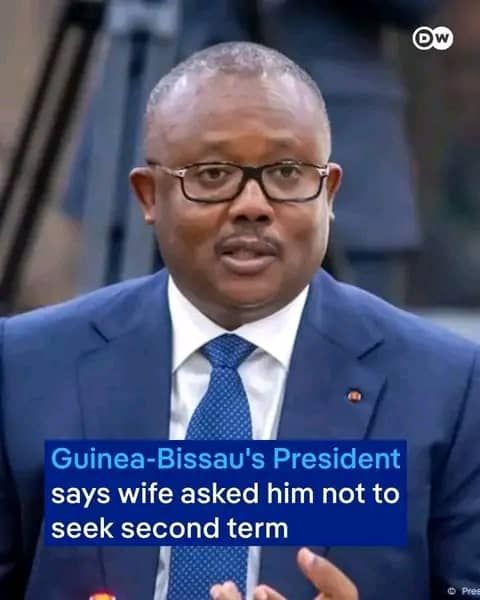By Twink Jones Gadama
Bissau, Guinea-Bissau – In a surprise move, President Umaro Cissoko Embalo announced that he will not seek a second term in the upcoming November elections.
Embalo, who was elected in January 2020 with 54% of the vote, attributed his decision to the persuasion of his wife.
The 51-year-old former army general has faced ongoing political challenges since taking office, including navigating the country’s complex web of political alliances and addressing the lingering threat of military intervention.

Embalo’s decision not to run again has raised concerns about potential political instability in Guinea-Bissau, a country with a history of coups.
Embalo did not name a successor but ruled out opposition figures Domingos Simoes Pereira, Braima Camara, and Nuno Gomes Na Bian, leaving many to wonder who will succeed him.
The president’s announcement has sparked a flurry of speculation and debate among political analysts and citizens alike.
Some have praised Embalo’s decision as a demonstration of his commitment to democratic principles and the rule of law.
Others have expressed concern that his departure could create a power vacuum, potentially destabilizing the country.
Guinea-Bissau has a long history of political instability, with numerous coups and assassinations having taken place since its independence from Portugal in 1974.
Embalo’s presidency has been marked by tensions with the military and opposition parties, making his decision not to seek reelection a significant development.
As the country prepares for the November elections, many are watching closely to see who will emerge as a leading candidate.
Embalo’s decision not to run again has opened up the field, and it remains to be seen who will succeed him as president of Guinea-Bissau.
In a country where political alliances are often fluid and unpredictable, Embalo’s departure could have far-reaching consequences.
Only time will tell if his decision will pave the way for a peaceful transition of power or if it will plunge the country into another period of instability.


